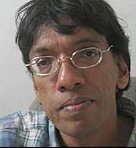Opposition Cannot Abdicate Its Role To Judiciary
By Jehan Perera -October 15, 2012
 The crisis that is brewing between the executive and judiciary is a sign that the system of checks and balances continues to be functional. In the past eight years since President Mahinda Rajapaksa became the Chief Executive the accumulation of power in the executive branch of government has grown apace and appears to be an unstoppable march. It was thought to have reached its apogee with the passage of the 18th Amendment to the Constitution by the present Parliament with a 2/3 majority. One section of this Amendment gave its assent to the President taking over the powers of appointment of heads to all key departments of government. This was a power that the previous 17th Amendment had thought fit to share between Parliament and the Executive President. This power sharing Amendment had been passed unanimously by a differently constituted Parliament a decade earlier.
The crisis that is brewing between the executive and judiciary is a sign that the system of checks and balances continues to be functional. In the past eight years since President Mahinda Rajapaksa became the Chief Executive the accumulation of power in the executive branch of government has grown apace and appears to be an unstoppable march. It was thought to have reached its apogee with the passage of the 18th Amendment to the Constitution by the present Parliament with a 2/3 majority. One section of this Amendment gave its assent to the President taking over the powers of appointment of heads to all key departments of government. This was a power that the previous 17th Amendment had thought fit to share between Parliament and the Executive President. This power sharing Amendment had been passed unanimously by a differently constituted Parliament a decade earlier.
It was disappointing to see senior members of Parliament, especially those on the side of the government, who had both publicly and privately expressed their disagreement with the 18thAmendment, nevertheless voting for it in Parliament. Among those who voted for the Amendment were those who had been elected as opposition Parliamentarians, and who had crossed over to take over ministerial positions in a jumbo cabinet of ministers of over 50 that was expanded to accommodate such crossovers. The critics of the 18th Amendment who voted for it were cognizant of the political reality that the government leadership would brook no opposition to the 18th Amendment which additionally gave to the President the right to run for unlimited terms of office, and not for just two as had limited the incumbency of previous Presidents.
The process of centralization of power is set to continue. The government has now presented the Divineguma bill to Parliament that is meant to concentrate economic power in the hands of the Economic Development Ministry. The democratic world long ago decided to put limits on the concentration of powers in the hands of a few individuals. But in Sri Lanka this logic is turned around on its head, and its greatest triumph of modern times that saw the demise of the LTTE is now sought to be emulated in other spheres on the same basis of unmitigated concentration of power. The proposed new law will consolidate economic resources that have been decentralized to statutory government authorities and to elected Provincial Councils and give the overriding decision making power to the Economics Ministry.

